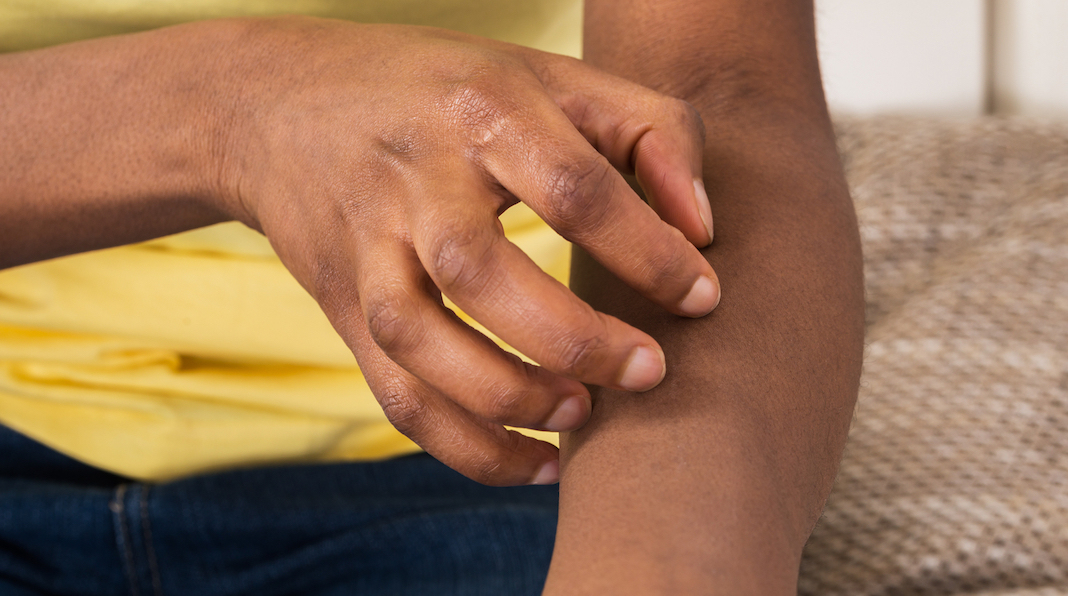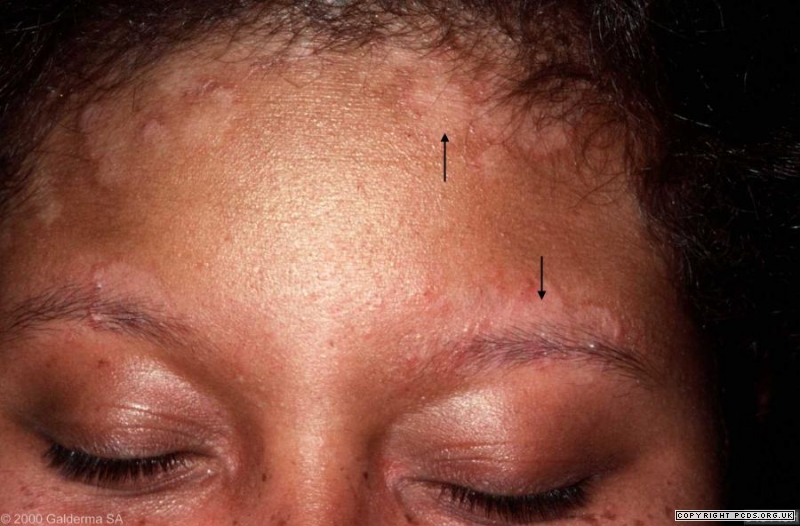When I was younger, I vaguely remember my sister having repeated bouts of eczema, which my mother attributed to poor hygiene. In recent years my sister has started to experience both hay fever and food allergies and it’s only now that (thanks to my knowledge of medicine) that it clicked that what she had all those many years ago was atopic dermatitis (also known as eczema).
This enlightened has prompted me to share my new found knowledge and hopefully enlighten more people.
What is atopic eczema?
Atopic eczema is a very common skin condition due to skin inflammation. It may start at any age but it usually starts in childhood. It may also start later in life in people who did not have AE as a child.
The term ‘atopic’ is used to describe a group of conditions, which include asthma, eczema and hay-fever and food allergy. These conditions are all linked by an increased activity of the allergy side of the body’s immune system. ‘Eczema’ is a term which comes from the Greek word ‘to boil’ and is used to describe red, dry, itchy skin which can sometimes become weeping, blistered, crusted, scaling and thickened. This description is more accurate for fair skinned people. In dark skinned people, eczema mostly presents as white flaky patches of skin that itch.
What causes atopic eczema?
Atopic eczema is a complex condition that is linked to a number of factors including patient susceptibility and environmental factors. Patients typically have changes in their skin barrier, and overly reactive inflammatory and allergy responses. Environmental factors include contact with soaps, detergents and any other chemicals applied to the skin, exposure to allergens. A tendency to atopic conditions often runs in families and is part of your genes. An alteration in a gene that is important in maintaining a healthy skin barrier has been closely linked to the development of eczema. This makes the skin of patients with eczema much more susceptible to infection and allows irritating substances/particles to enter the skin, causing itching and inflammation. AE cannot be caught by sharing items with someone who has it.
Can atopic eczema be cured?
Unfortunately, eczema cannot be cured, but there are many ways of controlling it. For most children, their eczema improves as they grow older. However, many of these people continue to have dry skin and so need to continue to avoid irritants such as soaps, detergents and bubble baths.
What makes atopic eczema flare-up?
● Many factors in a person’s environment can make AE worse; these include heat, dust, woollen clothing, pets and irritants such as soaps, detergents and other chemicals.
● Being unwell, for example having a common cold can cause a flare-up.
● Infections with bacteria or viruses can worsen AE. Bacterial infection (usually with a bacteria called Staphylococcus) makes the affected skin yellow, crusty and inflamed, and may need specific treatment. An infection with the cold sore virus (herpes simplex) can cause a sudden painful widespread (and occasionally dangerous) flare-up of AE, with weeping small sores.
● Dryness of the skin.
● Teething in babies.
● In some, food allergens may rarely cause a flare up
● Stress
How can atopic eczema be treated?
If you suspect that you or someone you know may have eczema, it is advisable to see a dermatologist (a doctor who specializes in treating skin conditions) Most eczema treatments are topical, although for more severe eczema some people need to take ‘oral’ medication (by mouth) as well.
Self care (What can I do?)
● Moisturise your skin as often as possible, ideally at least 2-3 times each day. Unscented moisturiser is tolerated best. This is the most important part of your skin care.
● Wash with a moisturiser instead of soap (known as a soap substitute), and avoid soap, bubble baths, shower gels and detergents.
● Wear non-powdered non-rubber gloves (e.g vinyl gloves) to protect your hands and avoid contact with irritants, when doing housework.
● Rinse well after swimming and apply plenty of your moisturiser after drying. Make sure that the shower at the swimming pool contains fresh water and not chlorinated water from the swimming pool.
● Wear comfortable clothes made of materials such as cotton and avoid wearing wool next to your skin.
● Try to resist the temptation to scratch. It may relieve your itch briefly, but it will make your skin itchier in the long term. Smooth a moisturiser onto itchy skin.
● Avoid close contact with anyone who has an active cold sore as patients with eczema are at risk of getting a widespread cold sore infection.
● Do not keep pets to which there is an obvious allergy.
● Keep cool. Overheating can make eczema itch more.
● Treat eczema early – the more severe it becomes, the more difficult it is to control.
● Rinse clothes thoroughly after washing to ensure all traces of detergent are gone.
Hopefully this new knowledge will help you understand that contrary to popular opinion, eczema has nothing to do with hygiene and any attempt to improve hygiene, such as taking more showers may only dry out the skin more and exacerbate already existing eczema or cause flare ups.







